India in 2016: Cash crisis, alcohol ban and cheapest phone
- Published
In India, 2016 has been a year of political surprises, alcohol ban and heated debates about nationalism, and plenty of other news in between.
The BBC's in-house cartoonist Kirtish Bhat picks five news events to give his humorous take on 2016.

Who wants freedom?
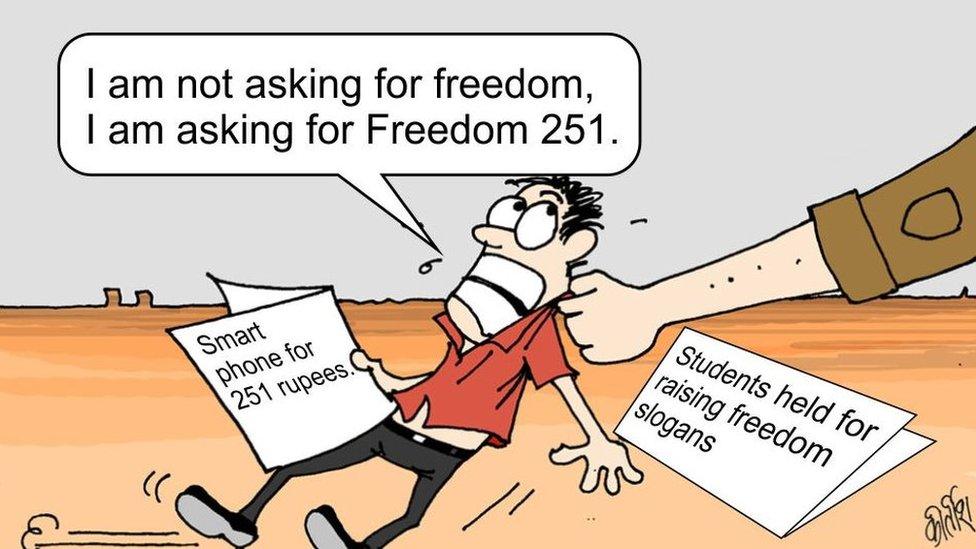
Two news events in February were all about freedom. One firm launched the world's cheapest smartphone, priced at 251 rupees ($3.67; £3), and called it Freedom 251. At the same time, police arrested some students in Delhi's Jawaharlal Nehru University for allegedly raising anti-India slogans, and demanding "freedom" for Kashmir from Indian rule. The students denied the allegations, but they were charged with sedition. Later, they were freed on bail.

Grounded
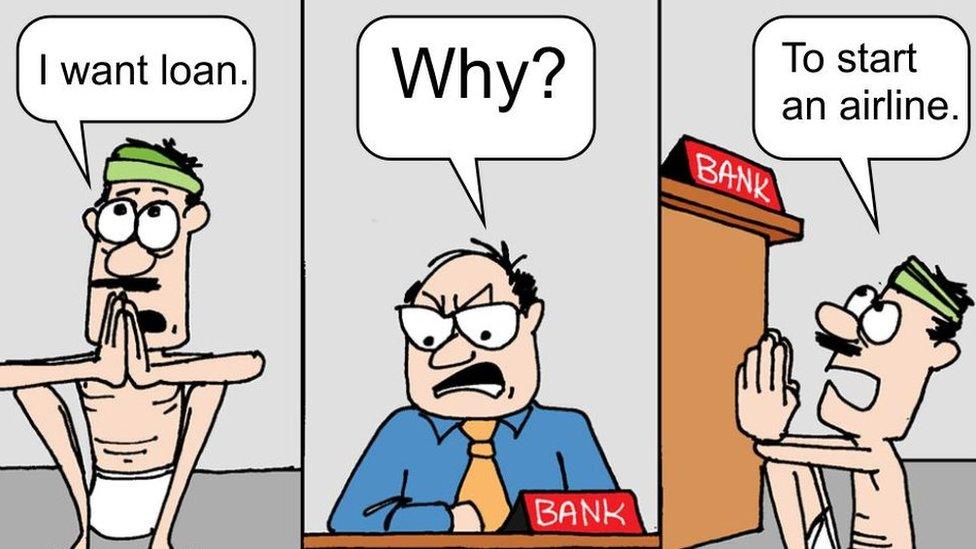
India's flamboyant businessman Vijay Mallya made his fortune selling beer under the Kingfisher brand and branched out into aviation, Formula1 racing, and Indian cricket. But he incurred huge debts because of the failure of his airline. Many have criticised banks for their inability in recovering the debt from Mr Mallya, who denies any wrongdoing. He is currently living in the UK, and hasn't returned to India despite repeated summons by the authorities.

Sober state
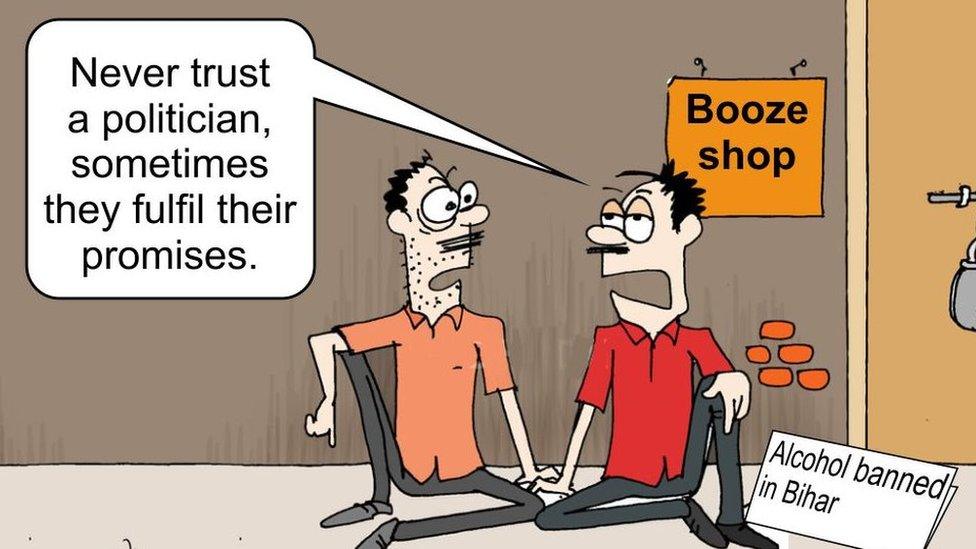
When the chief minister of the eastern state of Bihar, Nitish Kumar, promised during his election campaign that he would ban the sale and consumption of alcohol if elected, not many thought he would actually do it. But then he proved everybody wrong!

Going places
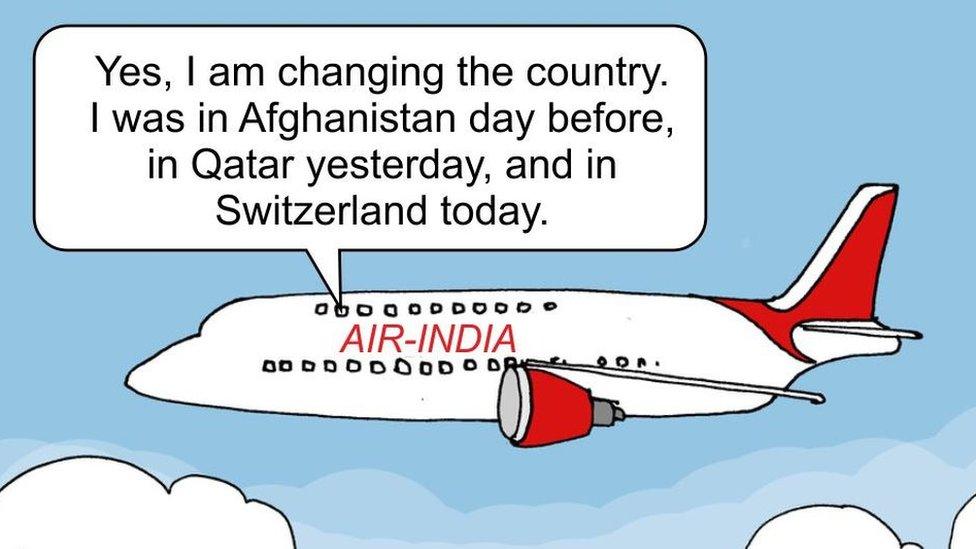
When Prime Minister Narendra Modi took office in 2014, he promised to change the country. But his critics say that he has been concentrating more on foreign policy, and travelling the world.

Cash for recycle
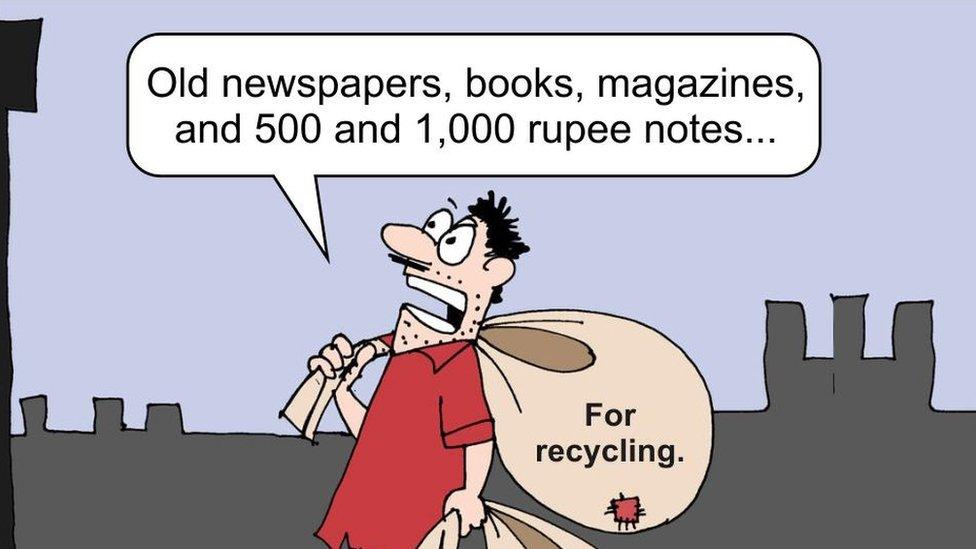
In one of the biggest surprises of 2016, Mr Modi on 8 November announced the scrapping of 500 and 1,000 rupee notes to crack down on corruption and illegal cash holdings known as "black money". The sudden announcement made many people's cash worthless.
